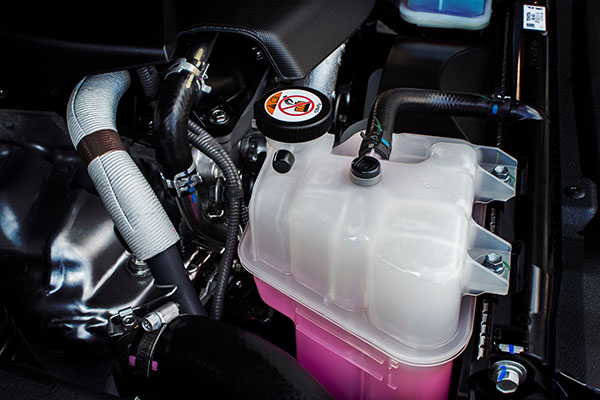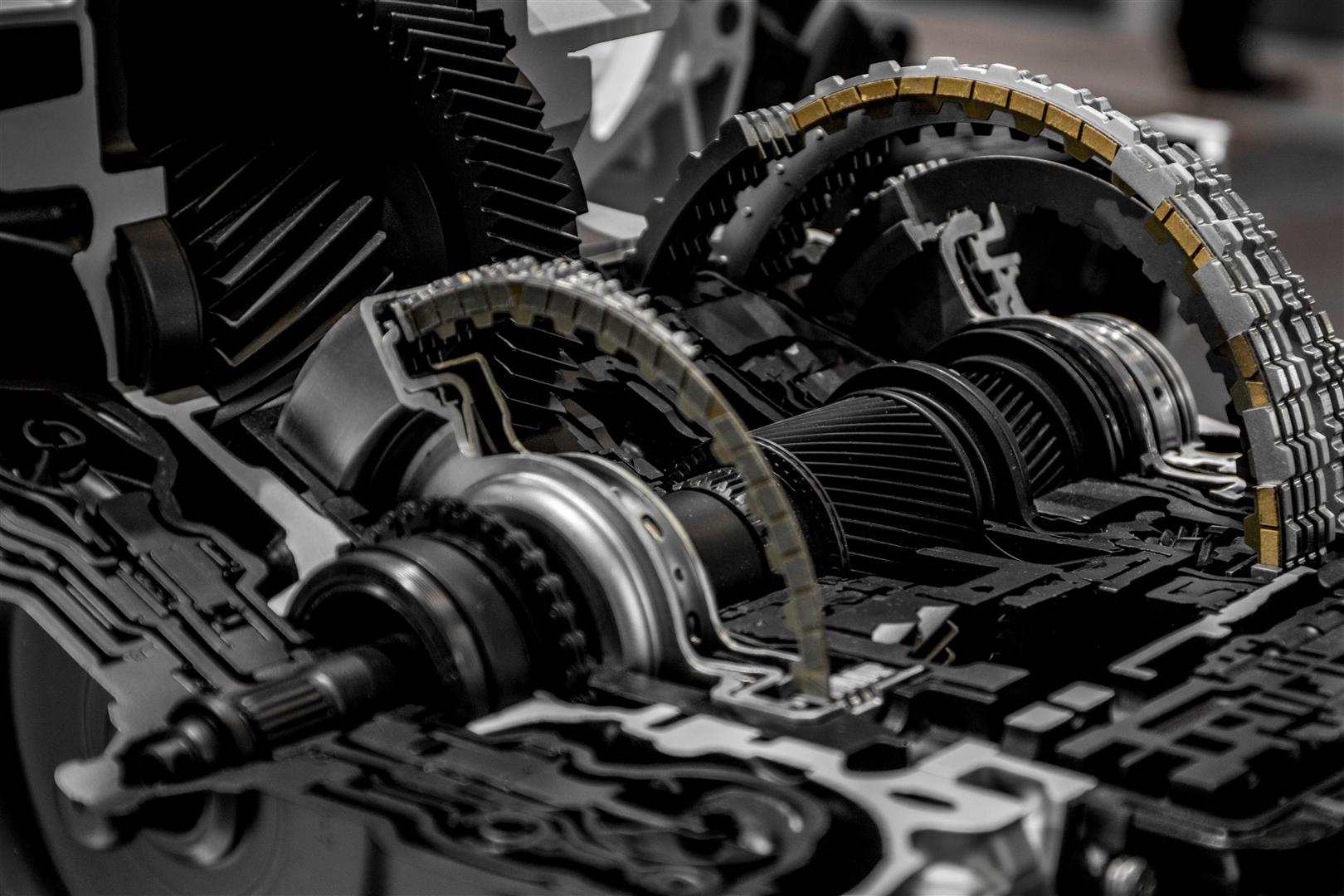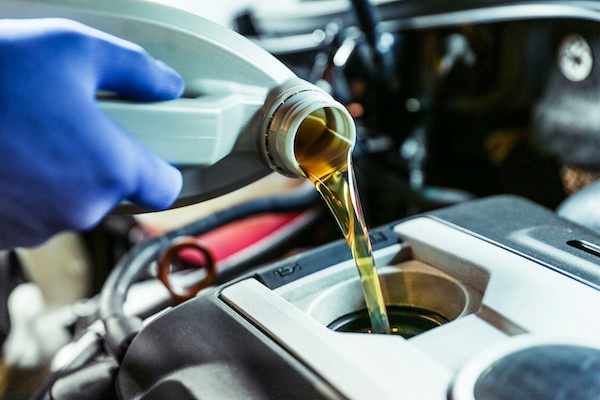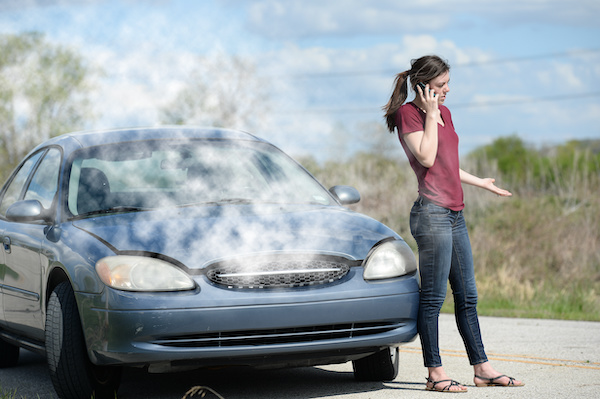Posted on 12/22/2023

As we navigate the sweltering days of summer or endure the relentless traffic jams, our vehicles bear the brunt of the heat. Behind the scenes, a silent warrior works tirelessly to prevent our engines from turning into a fiery inferno – the cooling system. Cooling System 101 The primary role of the cooling system is to regulate your engine's temperature, preventing it from overheating and succumbing to the stress of constant operation. Imagine it as the body's circulatory system, ensuring a steady flow of coolant to disperse the heat generated during combustion. Components - Radiators, Fans, and PumpsRadiators Think of radiators as the unsung artists in the engine-cooling gallery. They dissipate heat by exchanging it with the passing air, featuring a network of tubes and fins that enhance the cooling process ... read more
Posted on 11/30/2023
.jpeg)
Amidst the engine's hum and the traffic lights, something is going under the hood of your car that you probably never think of – components that are constantly lubricated by fluids. But why is that you might ask? Well, that's why we are here today! Lubricating the Vital Parts The engine relies on a delicate balance of moving parts, and this all demands proper lubrication. Engine oil is crucial in ensuring the smooth operation of pistons, camshafts, and crankshafts. Regular oil changes, in sync with your vehicle's maintenance schedule, are like providing a tonic for your engine's heartbeat, keeping it robust and efficient. Transmission Lubrication The transmission system is akin to the sidekick of a her, ensuring that the gears shift seamlessly and your vehicle glides effortlessly through different speeds. Transmission fluid ... read more
Posted on 10/31/2023
.jpeg)
There it is, that dreaded glow on your dashboard - the check engine light. In a split second, it can evoke a range of emotions, from mild annoyance to sheer panic. Yet, this enigmatic indicator isn't just a cause for concern; it's a valuable communication tool between your car and you. Understanding its nuances, deciphering its signals, and taking the necessary steps to address it can not only eliminate potential issues but also prevent costly repairs down the road.Decoding the Check Engine Light's MessagesThe check engine light isn't a cryptic enigma - it's a messenger that conveys valuable insights about your car's health. When illuminated, it signifies that the onboard diagnostic system has detected a potential issue, ranging from a loose gas cap to a ma ... read more
Posted on 9/30/2023

Your car is a finely tuned instrument, with every part working in harmony to create the symphony of your daily commute. But just like a musical instrument, over time, your vehicle might need a little fine-tuning to keep performing at its best. That's where tune-ups come into play. While the term "tune-up" may sound like an automotive buzzword, it holds real significance in the world of car maintenance. Understanding the Art of Tune-Ups So, what exactly is a tune-up? Think of it as a spa day for your car but with a purpose beyond relaxation. A tune-up is a comprehensive maintenance service that involves inspecting, adjusting, and replacing various components of your vehicle to ensure it operates at peak performance. Benefits That Go Beyond the Engine Now, let's uncover the incredible benefits of scheduling a tune-up: 1. Improved Fuel Efficiency A well-tuned engine runs more efficiently, which transl ... read more
Posted on 8/24/2023

We get it – cruising the streets of Las Vegas and Summerlin is a blast, but when the sun turns up the heat, your car's air conditioning becomes your new BFF. Picture this: a cool breeze, your favorite tunes blasting, and a grin from ear to ear. That's the magic of a well-functioning AC, and we're here to make sure your summer joyride stays as cool as a cucumber! Keep Your Cool Factor Sure, Vegas is famous for its scorching summers, but your car doesn't have to feel like an oven on wheels. Our air conditioning service is your secret weapon against the heatwave blues. We'll make sure your AC system is running smoothly and cool, so you can stay comfy while cruising the Strip or hitting the open road. Signs You're Due for A/C Service Not sure if your A/C needs a little TLC? No problemo! Here are a few telltale signs that it's time to roll into our shop: Is your air conditionin ... read more
Posted on 7/31/2023

How to Maintain Your Steering and Suspension System The suspension and steering system should be well maintained to enhance comfort in your vehicle. A good suspension system works with the steering system to ensure proper handling, improving car safety. Carry out the following activities to ensure these systems are in good condition. Regular Inspections Regular inspections are crucial for identifying potential suspension and steering component issues. Start by visually inspecting various parts such as shocks, struts, ball joints, control arms, tie rods, bushings, and springs for signs of wear or damage. Look out for leaks around shock absorbers or any loose connections. Alignment Check Proper wheel alignment is essential for optimal handling characteristics and tire longevity. Misaligned wheels can cause uneven tire wear resulting in reduced traction and compromised safety on the road. Periodically checking wheel alignment ensures all four wheels are aligned according to manufac ... read more
Posted on 6/29/2023

You've had the phrase said to you before An ounce of prevention is worth a pound of cure. This is especially true when it comes to maintaining your vehicle. Regular car maintenance is vital to maintaining a vehicle that lasts for years while maintaining a smooth riding experience. From oil changes to tire rotations, auto manufacturers recommend several maintenance tasks to keep your car running smoothly. Let's look at the importance of routine maintenance and why it's crucial to preserving the life of your car. Prevents Unexpected Breakdowns The most important benefit of regular car maintenance is preventing unexpected breakdowns. Regular oil changes keep your engine lubricated and running smoothly; failing to do so causes significant wear and tear on engine components, causing expensive repairs. Other maintenance tasks, like checking your car's brake pads and tire pressure levels, prevent breakdowns caused by worn-down components. Saves You Money and Time Regula ... read more
Posted on 5/30/2023

Has your vehicle suddenly come to an unexpected stop? Is your engine too hot for comfort? An overheated engine is a serious warning sign for any driver. It's important to understand the indicators of a bad engine so you can address the issue quickly before any further damage is done. Here are some common signs of an overheating engine: Temperature Gauge Reading: One of the clearest indicators of an overheated engine is if your temperature gauge is reading high. The normal temperature of an engine should stay between 195 to 220 degrees. Anything above that could indicate a problem. Steam or Smoke from Under the Hood: Strong-smelling steam or smoke coming from the hood of your car is a red alert. Seeing light white leaking. Dark, thicker smoke is a sign of burning oil, which could mean you need a major engine repair in the near future. Odd Sounds: Listen close ... read more
Posted on 4/15/2023
.jpeg)
April is National Car Care Month, and it's the perfect time to give your car some extra attention and ensure it's running smoothly. Regular maintenance is key to keeping your car in top shape and avoiding costly repairs down the road. Here are some words of advice to remember during National Car Care Month: Check your tires: In honor of National Car Care Month, you should make sure your tires are inflated to the right psi and have good tread depth. Underinflated tires can impact vehicle handling and increase fuel consumption, while tires with low tread depth can increase stopping distance and reduce traction. Change your oil and filter: Regular oil changes help keep your engine running smoothly and can prolong the life of your vehicle. You can refer to your owner's manual for the recommended oil change intervals and make sure to use the right type of oil for your car. Replace your windshield wipers: Spring showers can b ... read more
Posted on 3/30/2023
.jpeg)
As a car owner, you know that your car needs regular maintenance and tune-ups to keep running at its best. One important aspect of this maintenance is changing and replacing the various filters in your car. Below are the different types of filters that can be found in most vehicles: Air Filter: The air filter is an important part of your car's engine. It is responsible for filtering the air that enters the engine and removing any dirt, dust, or debris that could cause damage. Over time, the air filter can become clogged and dirty, reducing engine performance and fuel efficiency. It is recommended that you change your air filter every 12,000 to 15,000 miles or as needed. Oil Filter: The oil filter is responsible for removing any contaminants from the engine oil, keeping it clean and free-flowing. Over time, the oil filter can become clogged and dirty, reducing the efficiency of the oil and potentially causing engine damage. It is recommended that you change your oil filter every ... read more